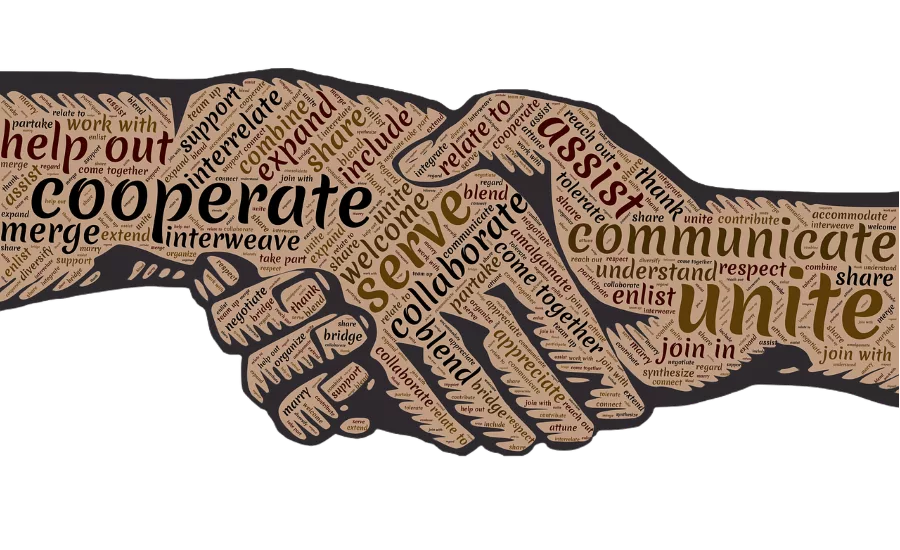Security Officers: You never have a second chance to make a first impression

You never have a second chance to make a first impression. And as professional security officers, first impressions can make all of the difference. Whether you make conscious or unconscious decisions, you leave an indelible impression on those around you.
Law enforcement and security professionals across the country have endured their share of trial and error when establishing a reputation of excellence throughout the history of criminal justice. Unfortunately, many officers do not realize the impact they have on others every day. And it’s often difficult to understand the complex decisions and reactions required of officers in their patrol functions and delivery of outstanding security services.
The big question is how can professional security offers blend security services and excellent customer service into a comprehensive security solution Also, how can officers use decision making effectively?
Technology hasn’t always been around in the world of security. When Barney Fife patrolled his community of Mayberry in The Andy Griffith Show, he did so with a very interactive open-mind as he extended a friendly welcome to everyone he encountered. He called everyone by name but he never took anything for granted. “Well, I guess to sum it up, you could say, there's three reasons why there's so little crime in Mayberry. There's Andy, and there's me, and [patting gun] baby makes three.” (Season 6, Episode 3.) Although we may not aspire to be Barney Fife in real life, we can learn a lot from his ability to engage people and build relationships.
Knowing everyone’s name may not be a modern day practicality, but the idea behind the personal relationships and building community trust is a present day ‘must’ for today’s security officers. We live in a technologically advanced society — yet police and security departments are often the most disconnected professionals from their respective communities. Why is this? What keeps us so disconnected and distant? What can we do to bridge the gap?
Unfortunately, there is a current attitude among many in our industry that officers must be tough, distant and controlling. At the same time, the expectation is that people must trust us as officers. So, how can we change the mindset that officers don’t really care about those they serve? And how can we create better relationships and build trust with those we serve?
The old days
First of all, it’s important to ask, “What happened to the day when officers were helpful, caring and understanding?” There was a time ‘in the old days’ when officers were friendly, approachable and social. They knew everyone in their community and approached each person with a smile, a wave and a greeting. Over time, many officers became more rigid in their thinking and believed that being stern and tough was a better approach – distancing themselves from the people they serve. Unfortunately, that mindset continues to create distance today between officers and the people we serve.
So, as security leaders, what can we do about it?
As we experience a time of great uncertainty in our country with distrust among people everywhere, there is no better time than now for officers to reflect on what creates bridges and relationships between people. And it starts with creating greater trust between security officers and our clients.
The good thing is we do not need to reinvent the wheel, implement a social media application or force remedial training programs on our security teams. The answer is much simpler.
First, we must understand the impact of our own decisions.
The impact of decisions
Think about the thousands of decisions you make every day. It starts when you wake up every morning. “When do I take a shower?” “How do I dress for work?” “What do I eat for breakfast?” These decisions not only affect us, but other people as well. They affect how others see us, how we feel during the day and how we act during our day.
Consequently, we do not always think of how our personal decisions affect others. Imagine what can happen if we train ourselves to think ‘outside the box’ before we make a decision. We can ultimately change an entire chain reaction for the better by considering the impact of our decisions more thoughtfully.
What better impact can we have on our clients than being the face of positive change? How can we alter the way clients we serve in hospitals, county offices and the community see us? What decisions can we make that will have a profound and positive impact on others?
If we as police and security officers truly harness the power of making decisions, then we can positively impact the clients we serve and the world. It starts with understanding the two basic types of decision making processes.
The two types of decisions we make every day are: (1) conscious and (2) unconscious decisions. For every decision we make, whether it is conscious or unconscious, we must accept the consequences from the start. You may ask yourself, ‘How can I accept the consequences of decisions when I don’t really understand why I made a particular decision in the first place?’
Let’s break this down and dive deeper into the two types.
Conscious decisions
First, we make conscious decisions. Being conscious of something is to know that something is taking place. We are fully aware of what is happening and why we are making a decision. A conscious decision allows us time to process the consequences of various choices. This brief assessment period for decision making can make or break us as an individual, an officer, or a complete team or department. It can have far-reaching implications and consequences. Conscious decision making allows us to weigh many factors for the best possible outcome.
As professional officers we are faced with many opportunities throughout the day to use conscious decision making. For example, when you patrol an area and observe an elderly person struggling in a wheelchair, you make a conscious decision whether or not to take action. Given the time to analyze this situation, do you let the person continue struggling and stick to a rigid patrol route, or do you make the conscious decision to assist the client with a greeting and asking the simple question, “Hello, may I assist you?”
Or, during the same patrol you notice trash on the ground. Do you ignore the trash and let someone else remove it, or do you take a few seconds and remove it? What are the consequences of your decision? Who does it impact and how?
In both everyday situations described above, the officer has time to assess and process what to do or not to do. When making decisions, we must also remember that uniformed officers are constantly observed – by the public, clients, customers and those in the communities we serve. When we take the time to go above and beyond expectations and make a difference, it has a positive impact on others. We begin to build bridges and relationships with others through conscious decision making that leaves a positive impression. We develop a natural instinct to quickly identify small things we can do that make a big difference to others.
A conscious decision is also about understanding the consequences. If we choose not to pick up that piece of trash during patrol, who will? Will that trash be the first thing someone sees lying on the ground as he enters the facility for the first time in your community or site? By making a simple, conscious decision to do something good, an officer creates a first impression that represents the officer as a caring individual. Your actions reflect positively on the organization, your clients, and the community when you make the right decision.
Conscious decisions create lasting impressions and become involuntary, unconscious reactions in the future. They create subconscious memories that contribute to unconscious decisions later.
Unconscious decisions
The world of security is fraught with urgent issues and the need for reactive response to concerns. Conscious decision making is not always possible and that’s when unconscious decision making becomes critical. It relies on our professional ability to make rapid decisions to mitigate security incidents or safety issues.
Unconscious decisions are more instinctively based reactions with very little time to ponder multiple outcomes and impact. Police and security officers are often forced to make an unconscious decision based on personal reaction to an incident. These decisions often don’t allow the luxury of time to consider long-term consequences because of their sensitive nature and limited time for action.
Situations that require unconscious decisions are based on personal instinct, training knowledge, experience, and brief recollection of previous or similar encounters. Officers are immediately forced to make unconscious decisions in response to threatening behavior(s), unsafe conditions, violent outbursts and other types of urgent matters.
That’s why conscious decision making, continuous training, learning, and growth are essential for security officers. It is our job as security professionals to continuously evaluate situations and consider how to handle possible scenarios. Experience and training are critical in our profession. Historical decisions are stored in our subconscious, which helps us make more effective unconscious decisions. Although unconscious decisions do not always allow us to consider consequences, we can quickly draw on our knowledge from training, experience and studying historical events.
Sigmund Freud is quotes as saying, "When making a decision of minor importance, I have always found it advantageous to consider all the pros and cons. In vital matters however...the decision should come from the unconscious, from somewhere within ourselves."
In Freud’s work, he went on to explain that unconscious decision making relies on past thoughts, memories and information stored in the subconscious brain. This supports the strategy of ongoing, continuous training and collaboration that increases our knowledge and enhances our experience as professional security officers.
Unconscious decisions will never go away. They will always be critical because officers respond to urgent and critical incidents every day. Unconscious decisions have a very real-time, everlasting impact and the potential for great consequences – positive or negative. If we as individuals and officers take the extra time to focus on our conscious decisions — and really put forth an effort to not only make a difference — but be the difference - we will establish a more collaborative, caring and trusting community.
The decision is ours, do we sit back and act tough and distant, waiting for the 5% of our duty to take place? Or, do we take advantage of the 95% of our duty and take it back to the ‘old school’ when customer service was integrated into every aspect of security services? Do we make the decision to go the extra mile, make a difference and do the unexpected? Do we bridge the gap and create long-lasting relationships with clients through effective decision making?
Remember, the difference in security service and outstanding security service is you, your team - and the decisions you make every day!
Looking for a reprint of this article?
From high-res PDFs to custom plaques, order your copy today!








